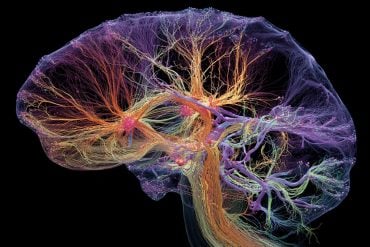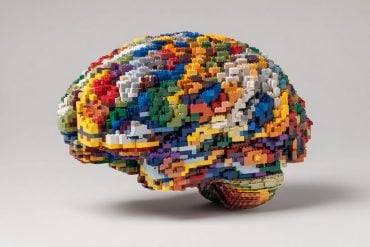Summary:Researchers have found a notable link between insomnia symptoms and hypertension in women. Drawing from a 16-year study involving over 66,000 participants, the study showed women with sleep difficulties were more prone to high blood pressure.
The findings emphasize the crucial importance of quality sleep for overall health, especially for women. The study’s insights stress the need for early detection and intervention.
Key Facts:
- The study monitored 66,122 women for 16 years, tracking sleep habits and hypertension.
- Women sleeping less than 7-8 hours or facing insomnia symptoms had a higher risk of hypertension.
- Despite the strong correlation, causality between sleep disturbances and hypertension is not confirmed.
Source: Brigham and Women’s Hospital
New study from Brigham researchers highlights a correlation between symptoms of insomnia and hypertension in women.
Getting enough sleep has never been more difficult in today’s fast-paced environment. Yet new research from investigators in the Channing Division of Network Medicine of Brigham and Women’s Hospital, a founding member of the Mass General Brigham healthcare system, highlights why getting a good night’s sleep is critical to staying healthy.

Their research unveils that women who struggled with getting enough sleep were at greater risk of developing hypertension, or high blood pressure.
Results are published in the journal Hypertension.
“These findings suggest that individuals who struggle with symptoms of insomnia may be at risk of hypertension and could benefit from preemptive screening,” explained Shahab Haghayegh, Ph.D., a research fellow at the Brigham and Harvard Medical School.
“Hypertension is associated with many other physical and mental health complications. The sooner we can identify individuals with high blood pressure and treat them for it, the better we can mitigate future health issues.”
Both hypertension and sleep disorders are becoming increasingly prevalent among adults in the United States. In fact, more than 35% of US adults do not get enough sleep at night, according to the Centers for Disease Control and Prevention. The American Academy of Sleep Medicine suggests that 30% of Americans experience symptoms of insomnia. Strikingly, 45% of U.S. adults live with high blood pressure.
Haghayegh and colleagues followed 66,122 participants between 25 and 42 years of age in the Nurses’ Health Study II (NHS2) cohort, all without hypertension at the study’s onset, over sixteen years (from 2001 until 2017).
Investigators collected information on participants’ age, race, body mass index (BMI), diet, lifestyle, physical activity, history of sleep apnea, and family history of hypertension and assessed the incidence of hypertension among the group every two years. They first began measuring sleep duration in 2001, then did so again in 2009, recording the average number of hours slept over a 24-hour period.
They also tracked sleeping difficulties, such as having trouble falling or staying asleep or waking up early in the morning, collecting responses at several time points throughout the study.
Data analyses revealed that women with sleeping difficulties had higher BMIs, lower physical activity, and poorer diets, on average. Researcher also found that those who struggled with sleep were more likely to smoke and drink alcohol and have previously gone through menopause.
Among the 25,987 cases of hypertension documented over the follow-up, women who slept less than seven to eight hours a night had a significantly higher risk of developing hypertension, according to the data collected. Similarly, women who had trouble falling asleep and staying asleep were also more likely to develop hypertension.
Waking up early in the morning was not associated with this increased risk. Notably, these associations, remained significant after controlling for participant shift work schedules (night versus day shifts) and chronotype (morningness versus eveningness).
While the exact nature of the relationship between sleep and risk of hypertension is unknown, Haghayegh said that sleep difficulties can lead to a chain of events that can increase sodium retention, arterial stiffness, and cardiac output, potentially leading to hypertension. Disruptions to the sleep/wake cycle can also influence blood vessel constriction/relaxation activity and the function of cells that regulate the vascular tone.
While this study only looked at the association between sleep and hypertension in women, researchers hope to expand their work to include men and non-binary participants. A second limitation is that researchers could only collect data on sleep quality at select time points throughout the study. Some of the study’s strengths include the larger number of participants and length of follow-up duration.
Haghayegh emphasizes that these findings do not indicate causality. He wants to understand why this association exists and how treating one condition may also treat the other. In future clinical studies, he aims to investigate if sleep medications could have a beneficial effect on blood pressure.
“I hope these findings further underscore the crucial role of quality sleep in our overall well-being. The American Academy of Sleep Medicine recommends sleeping seven or more hours a night, and if you cannot fall or stay asleep, it might be worth exploring why that is,” said Haghayegh. “This study highlights yet another reason why getting a good night’s sleep is so important.”
Co-authorship: Co-authors on the paper include Susanne Strohmaier, Rikuta Hamaya, A. Heather Eliassen, Walter C. Willet and Eric B. Rimm. The senior author of the paper is Eva Schernhammer, M.D., DrPh, of the Channing Division of Network Medicine.
Disclosures: none
Funding: This study was supported by the National Institutes of Health (grant numbers UM1CA186107, U01 CA176726, P01CA87969, U01 HL145386, P30 ES000002, R01 CA163451, and R01 HD101101) and by funding from the European Research Council under the European Union’s Horizon 2020 research and innovation program (grant agreement numbers 101053225).
About this sleep and health research news
Author: Angela Christoforos
Source: Brigham and Women’s Hospital
Contact: Angela Christoforos – Brigham and Women’s Hospital
Image: The image is credited to Neuroscience News
Original Research: Closed access.
“Sleeping Difficulties, Sleep Duration, and Risk of Hypertension in Women” by Haghayegh et al. Hypertension
Abstract
Sleeping Difficulties, Sleep Duration, and Risk of Hypertension in Women
BACKGROUND:
Rates of poor sleep and hypertension are alarming worldwide. In this study, we investigate the association between sleeping difficulties and sleep duration with hypertension risk in women.
METHODS:
Sixty-six thousand one hundred twenty-two participants of the NHS2 (Nurses’ Health Study 2), who were free of hypertension at baseline (2001), were followed prospectively for 16 years and incident hypertension assessed every 2 years. Cox proportional hazards models were used to estimate hazard ratios (HRs) and 95% CIs for hypertension incidence associated with sleeping difficulties and sleep duration.
RESULTS:
During follow-up, we documented 25 987 incident cases of hypertension. After controlling for demographic and lifestyle risk factors, compared with women who slept 7 to 8 hours, women with shorter sleep duration had a significantly higher risk of hypertension (≤5 hours: HR, 1.10 [95% CI, 1.05–1.16]; 6 hours: HR, 1.07 [95% CI, 1.03–1.10]), whereas the risk for women with longer sleep duration was not statistically significant (9 hours: HR, 1.03 [95% CI, 0.97–1.10]; >9 hours: HR, 1.08 [95% CI, 0.94–1.23]). Compared with women rarely having difficulty falling or staying asleep, women sometimes or usually having these sleep difficulties had significantly higher risk of developing hypertension (HR, 1.14 [95% CI, 1.11–1.17] and 1.28 [95% CI, 1.22–1.35]; Ptrend<0.001). Early morning awakening was not associated with hypertension risk (Ptrend=0.722). There was no effect modification by night work or chronotype.
CONCLUSIONS:
Difficulty falling or staying asleep and short sleep duration were associated with higher risk of hypertension among women in our study. Screening for poor sleep could be useful in identifying people at higher risk for hypertension.






